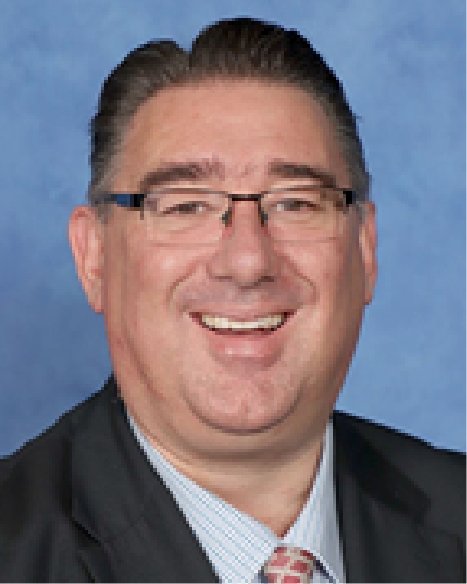Intercultural Education
International Human Rights Under Pressure - What can Barker do?
Patricia Garcia AO, international human rights advocate and Partnership Development Manager at the Institute for Economics and Peace (IEP), opened the final Barker Institute event for 2023.

The IEP is an independent global think tank that aims to create a paradigm shift in the way the world thinks about peace. It undertakes innovative research, including a study of Education and Peace which the IEP is producing for the World Bank and Global Partnership for Education this year. Reflecting on her personal and professional experiences, Garcia presented a call to action in support of the idea of education not just as a human right but as an enabling right. She emphasised the role of schools in helping to shape a more peaceful world. The focus of schools on things like tolerance for difference and appreciation of cultural diversity are also great examples of how education is a significant contributor to peace.
It was such a timely message. Conflicts in Ukraine and Gaza have seen international human rights come under pressure. News reports of people being forcibly displaced from their homes are, sadly, daily occurrences. And yet, this year marks the 75th anniversary of the Universal Declaration of Human Rights (UDHR), a document that has the inherent dignity of human life at its core. I asked Bianca, one of Barker’s Social Justice Captains who hosted the event, what was one of the key takeaways from the evening for her. She replied:
…it is everyone’s responsibility to educate themselves and others about human rights. Sometimes we feel upholding the UDHR may only fall to politicians and corporations but, in reality, we may all play a role in this.

The power of education in enabling human rights. It was a recurring theme of the evening – and a powerful one. This was one of the things that struck Lachlan, the other Social Justice Captain who hosted the evening. For him, the positive change education can make in the world is an exciting calling, and one in which he wants to continue his involvement. The UDHR is the most translated document in the world today – it has been translated into over 500 different languages – and its 75th anniversary will be celebrated on Sunday 10 December, the date in 1948 it was signed by the UN General Assembly.

Garcia’s words also set up for Barker’s Director of Humanitarian Programs, Julia West, to speak about refugee education. West’s presentation started with a moving, “inspired-by-real events” scenario which had everyone imagining what it would be like if they had to flee a country due to persecution. It was a scenario that was closer to home than the audience realised until she revealed that it was drawn from the story of one of the refugees that call Barker their school.
What followed from West was Barker’s response to Garcia’s call for action: establishing a school within a school that contributes to realising Phillip Heath’s vision of a Barker that has global engagement driven by justice and hope. It will be called Marri Mittigar, or “Many Friends” in the Dharug language. For Bianca, Marri Mittigar reminded her “about the importance of our local community in affecting change, even if it is just small, grassroots initiates, all efforts to become involved and help out are important”. Bianca’s comment also reflects that Barker’s Humanitarian Program has grown over a period of time. Marri Mittigar, while a significant development in the school’s humanitarian work, is only one part of a greater whole. The model of the school is inspired by Barker’s already well-established three Indigenous Education campuses. The school has already taken on a couple of refugee students, one in primary school and one having just completed secondary school. There is also an after-school homework club, now supporting 20 students from a variety of refugee backgrounds.

The evening came to an end with a Q&A Panel. I was fortunate enough to sit on this panel alongside Garcia, West and Phillip Heath. There was only time for a couple of questions to the panelists, but the answers were deep and further challenging. It brought the event to a close, leaving the night with, as Lachlan remarked “a lovely buzz of passion and connectivity going through the room, with lots of people staying behind at the end, wanting to learn more and asking how they can help”.

As part of the evening, the Barker Institute had the opportunity to launch an important Supplementary Volume of the 2023 Barker Institute Journal, Learning in Practice. The monograph Towards a pedagogy of radical hope: Developing a whole school approach to refugee education has been used by the team leading Barker's humanitarian projects, and is now available to individuals, researchers, and schools seeking a literature-informed framework around educating refugee students. Details of this work, and other Barker Institute publications are available at barker.institute/publications.

Dr Timothy Scott
Tim has held leadership roles in schools across Australia and abroad for 25 years, alongside teaching History and Modern Languages. His research focuses on intercultural learning and pedagogical translanguaging, refugee education, and student voice in improving educational practice. He is a lead researcher for the Barker Institute’s ongoing decade-long longitudinal study, The Barker Journey. Alongside his research work, Tim currently teaches History and Global Studies. His PhD examined socio-political influences on contemporary German conceptions of history and archaeology.







